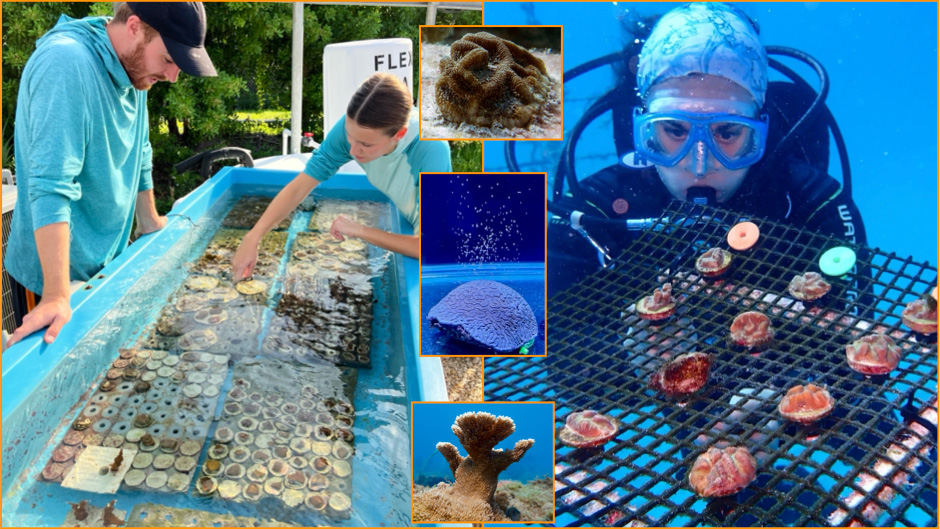University of Miami, partners awarded $16 million NOAA grant for groundbreaking coral restoration project

Research grant will propel the focus on breeding resilient coral populations to significantly boost the number of climate-resilient corals introduced to the Florida Coral Reef each year.
Credits: Katherine Hardy, Diana Udel, Liv Williamson
By Diana Udel
d.udel@miami.edu
11-22-2024
Scientists at the University of Miami Rosenstiel School of Marine, Atmospheric, and Earth Science and partners were recently awarded a four-year, $16 million grant from the National Oceanic and Atmospheric Administration (NOAA) Fisheries Habitat Conservation Program Office, to lead an ambitious program to implement and scale-up new approaches to increase the climate resilience of Florida’s restored coral reefs.
The collaborative effort is designed to translate new research into transformative restoration action and will unite the Rosenstiel School with ten other South Florida partners - Mote Marine Laboratory, Nova Southeastern University, The Florida Aquarium, Phillip and Patricia Frost Museum of Science (Frost Science), Smithsonian Marine Station, The Reef Institute, Reef Renewal USA, SECORE International, Biscayne National Park, and AECOM– to form a network that shares new knowledge, resources, and best practices to maximize the ability of newly restored corals to survive climate change impacts.
In response to the unprecedented marine heatwave of 2023, which resulted in record levels of coral bleaching across Florida’s Coral Reef, the team aims to scale up new coral restoration practices to enhance the resilience of these vital marine ecosystems. The project will take place across multiple sites in South Florida, including in Palm Beach, Broward, Miami-Dade, and Monroe counties.
"Florida’s Coral Reef is facing one of its greatest challenges yet, and our team is committed to pioneering new approaches to ensure its survival," said Andrew Baker, the lead of the project and a professor in the
Department of Marine Biology and Ecology and director of the
Coral Reef Futures Lab at the Rosenstiel School. "With NOAA's support, we plan to implement groundbreaking approaches that incorporate newly emerging science into restoration efforts designed to enhance coral resilience to increasingly warm oceans”.
…
